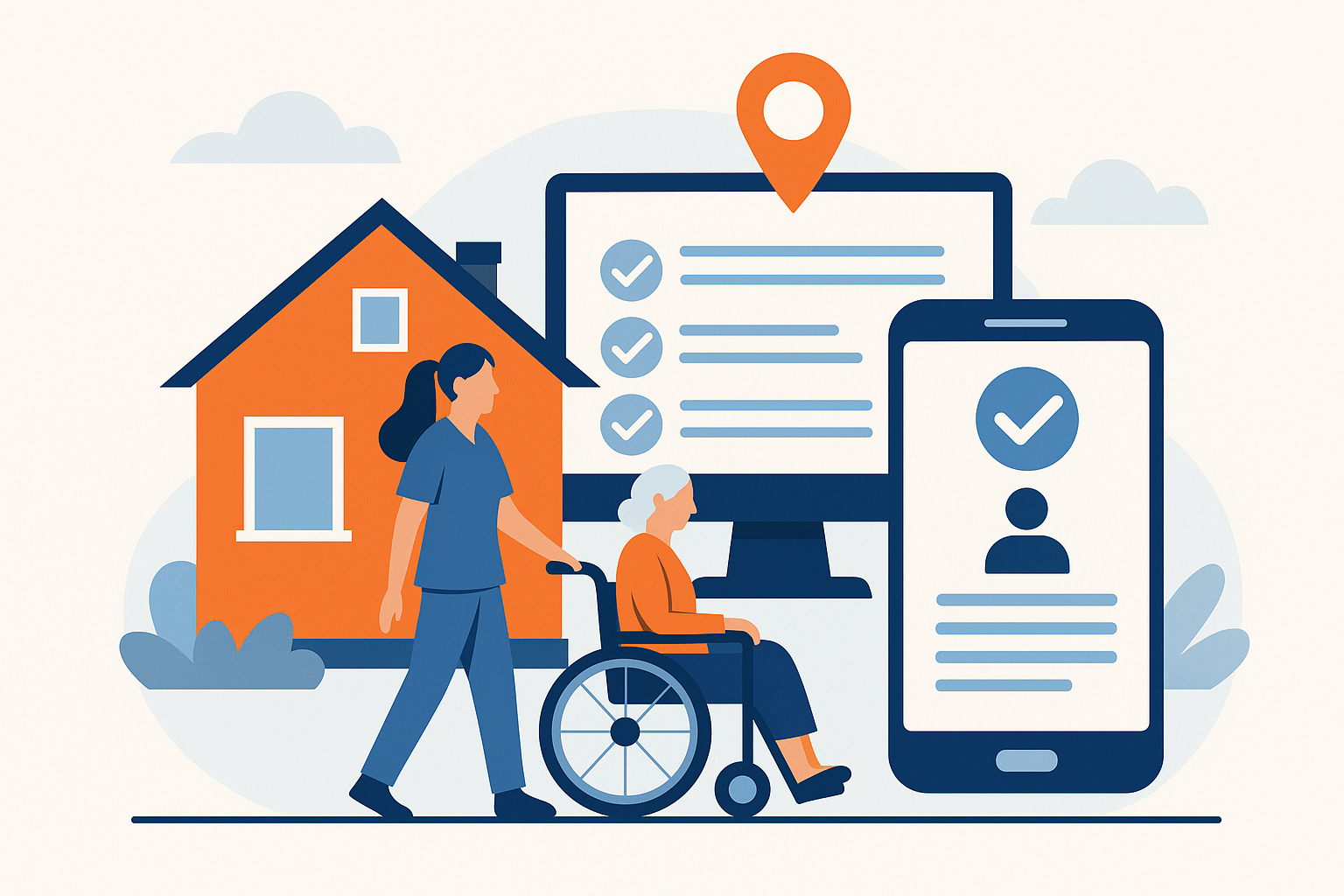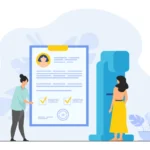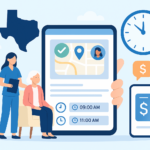If you’re running a Medicaid-funded home care agency in Ohio, Electronic Visit Verification (EVV) directly impacts your reimbursements, audits, and reputation. And in 2025, EVV enforcement is changing fast.
This blog will walk you through everything you need to know about Ohio EVV and how to build a future-proof EVV strategy with allGeo.

What Is EVV and Why Is It Required in Ohio?
Electronic Visit Verification (EVV) is a digital method to confirm that home care services were delivered accurately including:
- Who received the care
- Who provided it
- When the visit started and ended
- What services were delivered
- Where the care took place
Under the federal 21st Century Cures Act, states must enforce EVV for Medicaid-funded home care services. Ohio began its phased rollout in 2018 and has significantly ramped up enforcement in 2025.
Bottom line: Without compliant EVV records, your Medicaid claims can be delayed, or denied.
Who Needs to Comply with Ohio EVV?
Ohio mandates EVV for providers delivering personal care or home health services under Medicaid. This includes:
- Home Health Agencies
- Personal Care Providers
- Skilled Nursing and Therapy Providers
- Services under:
– Ohio Home Care Waiver
– PASSPORT Waiver
– MyCare Ohio
– Individual Options (IO) Waiver
– SELF Waiver
Still unsure if your agency is included? Contact us to verify your EVV requirements.
2025 Ohio EVV Updates You Need to Know
Ohio has adopted an open model for EVV, meaning agencies may either:
- Use the state-provided Sandata system, or
- Use a certified third-party vendor (like allGeo) that integrates with Sandata
Here’s what’s new in 2025:
1. Claims Adjudication Now in Effect (Phase 1)
Since March 1, 2025, ODM has begun denying Medicaid claims that do not have a matching EVV visit record. This currently applies to home health services with codes such as G0151–G0156, G0299, and G0300.
2. Mandatory Use of OHID
Ohio’s secure identity management platform, OHID, with multi-factor authentication, now manages access to all EVV-related portals.
3. Written GPS Consent Required
You must obtain signed consent before collecting GPS location data during clock-in/clock-out.
4. Visit Location Tagging
Each visit must specify whether it took place at Home or in the Community. The system may reject manual entries without these tags.
5. Live-In Caregiver Exemptions
ODM allows exemptions for caregivers living with the patient. You must formally request this exemption through the EVV Exemption Portal.

EVV Methods Approved in Ohio
You can capture EVV data using:
- Mobile App (GPS-enabled; requires written consent)
- Telephony (using the client’s landline or a toll-free number)
- Manual Entry (only when other methods are not feasible)
What Happens If You Don’t Comply?
Ohio Medicaid has made it clear: EVV compliance is directly tied to reimbursement. Here’s what’s at stake:
❌ Claims get rejected if EVV visit data is missing or mismatched
⏳ Delayed payments due to verification errors
📋 Audit risk from repeated inconsistencies
🚫 Potential disqualification from Medicaid programs
How allGeo Simplifies EVV Compliance for Ohio Providers
Care providers across the U.S. trust allGeo, a certified EVV solution fully integrated with the Sandata Aggregator and purpose-built to help agencies navigate Medicaid compliance.
Key Benefits of allGeo’s EVV Solution for Ohio:
- Seamless Sandata integration
- Real-time EVV validation dashboard to catch errors before submission
- GPS-based mobile app with offline mode
- Built-in telephony option
- Configurable alerts for missed or late visits
- API to sync with payroll, billing, and HR systems
Ready to stop worrying about claim denials?
Start your free trial with allGeo or schedule a demo today.
Ohio EVV FAQs
Is EVV mandatory in Ohio?
Yes. All Medicaid-funded personal care and home health services require it.
Can I use an EVV vendor other than Sandata?
Yes, as long as the vendor integrates with Ohio’s official EVV aggregator, Sandata. allGeo is an approved alternative.
What is the 2025 EVV enforcement date?
Claims adjudication started March 1, 2025, beginning with home health provider types. The state will phase in additional service categories throughout the year.
How do I avoid EVV-related claim denials?
Use a system like allGeo that validates records in real-time, supports all capture methods, and integrates directly with Sandata.
Next Steps: Make EVV Work for You
With Ohio EVV rules tightening, your agency needs more than a basic time clock. You need a system that:
- Protects you from compliance risk
- Reduces operational burden
- Improves caregiver accountability
- Ensures every minute of care is tracked, verified, and reimbursed
Whether you’re switching vendors or starting fresh, allGeo helps you go live fast — with expert onboarding, dedicated support, and scalable workflows.
Ready to future-proof your Ohio EVV compliance?
✅ Start your 14-day free trial
📅 Schedule your personalized demo



